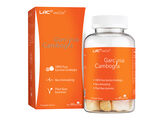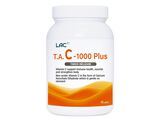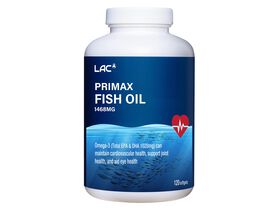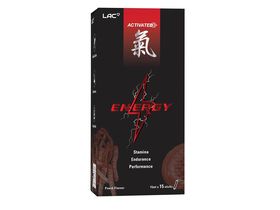Health Beliefs: Myths or Facts?

Let’s debunk some common health beliefs and not make the same mistakes again!
Have you ever wondered whether some of the health beliefs are true or they are just a misconception after all? Let’s debunk these common health beliefs them and get your facts right so you don’t have to repeat the same mistakes this year!
Myth 1: Calories eaten at night are more fattening than those eaten during the day
The truth: This myth isn’t new to all of us, and some people still believe that supper is the reason why it makes them gain weight. The truth is, it has nothing to do with what time you eat but more with what you eat in a day. According to John Foreyt, PhD, director of the Behavioral Medicine Research Center at Baylor College of Medicine in Houston, calories are calories, and what matters are the total calories you take in a day.[1] Not to forget, putting your gender, age, height and other factors into consideration as well.
Having said that, the concerns about eating late at night are not totally questionable. However, delaying your meal till late at night can lead to the consumption of larger portion sizes and a craving for fast food as compared to healthier food options. Additionally, mindless snacking on fried, oily or sugary snacks while studying or watching TV at night can result in consuming more calories than you need in a day.
If you find it hard to practice self-control, you may consider taking garcinia cambogia extract to suppress your appetite and reduce the tendency of overeating at night, especially when you just want to munch on something.
Myth 2: You can catch up on missed sleep over the weekend
The truth: If you think you can repay the hours of sleep that you missed out on weekdays, sadly it doesn’t work in that short amount of time. Research has shown that the reaction times, attention span, and fatigue levels of participants who slept 4 hours for 5 days did not return to normal even after 10 hours of sleep, concluding that a single sleep-in over the weekend might not make up for the lack of sleep during the week.2
The good news is that it is possible to repay your sleep debt but it won't happen in one extended snooze marathon. If you’ve slept fewer than seven hours per night for years, it may take a few weeks of sufficient sleep to repay your sleep debt[2]. Tacking on an extra hour or two of sleep a night is the way to catch up on sleep. If you are one of those who experience interrupted sleep at night, get additional help from a non-habit-forming supplement that includes these ingredients – Glycine, Chamomile Extract, Phosphatidylserine and Vitamin C, Milk Extract, Calcium, Magnesium and Vitamin Bs, Trititide Wheat Fermented Powder. They are important to relax muscles, promoting deep sleep and eventually improving sleep quality.
Myth 3: “I’ve always had a strong immunity and it will stay this way.”
The truth: Although some are born with a more robust immune system, our immunity inevitably also weakens with age[3]. As the years pass, there will be fewer circulating white blood cells and activity, which lowers the immune defence, compromising our immune responses when there are infectious invaders. Interestingly, some people have an immune system that is significantly older or younger than they are. This also ultimately depends on how they manage their daily lifestyles and habits.
If you are looking to increase your immunity and strengthen your body, Vitamin C is always the way to go. As there are countless Vitamin C on the market, do consider Vitamin C formulas that are non-acidic so it is gentle on the stomach, timed-released for gradual yet maximum absorption, and components consisting of Grape Seed Extract, L-Glutathione and Citrus Bioflavonoid for antioxidant protection.
Myth 4: Greens help to relieve constipation
The truth: “Maybe you’re not eating enough greens?” This could be a common response that you often hear when someone tells you when you are constipated. Or maybe you would respond the same way yourself. Indeed, consuming foods that are rich in fibre such as fruits and vegetables promotes bowel movements, but do you know that too much fibre and not enough water could also be the cause of constipation? Fluid is also as important as fibre since they help move things along the digestive tract and not enough of it will lead to constipation.
Alternatively, intake of probiotics is also highly recommended as they proved to promote bowel movement with higher frequency and effectively alleviate constipation as well, overall improving gut health[4]. If this is something you are considering, get a probiotic that provides a minimum of 25 billion CFUs of active probiotics for daily gut maintenance.
Myth 5: Only people who drink alcohol will cause harm to their liver
The truth: Don’t judge by its appearance. The urban lifestyle, with its high-fat diet of fast food and processed food, environmental pollution, late nights of working or partying, coupled with the stresses of everyday life, can cause your liver to overwork. This could potentially increase the risks of being diagnosed with fatty liver disease, a condition where excess fat builds up in the liver which can damage the organ and lead to serious complications. An overworked liver can also cause you to have trouble sleeping which becomes a vicious cycle that further stresses the liver.
Protect your liver with a proprietary Traditional Chinese Medicines (TCM) herbal blend to help support healthy blood lipid levels and maintain functions of the liver, especially for adults who are living a high-fat diet, sedentary lifestyle and are on heavy medication.
[1] https://www.eatingwell.com/article/16296/the-13-biggest-nutrition-and-food-myths-busted/
[2] https://news.umiamihealth.org/en/can-you-repay-your-sleep-debt/#:~:text=Can%20you%20make%20up%20sleep,pay%20off%20that%20sleep%20debt.
[3] https://www.ncbi.nlm.nih.gov/pmc/articles/PMC7270427/
[4] https://www.ncbi.nlm.nih.gov/pmc/articles/PMC8838973/










